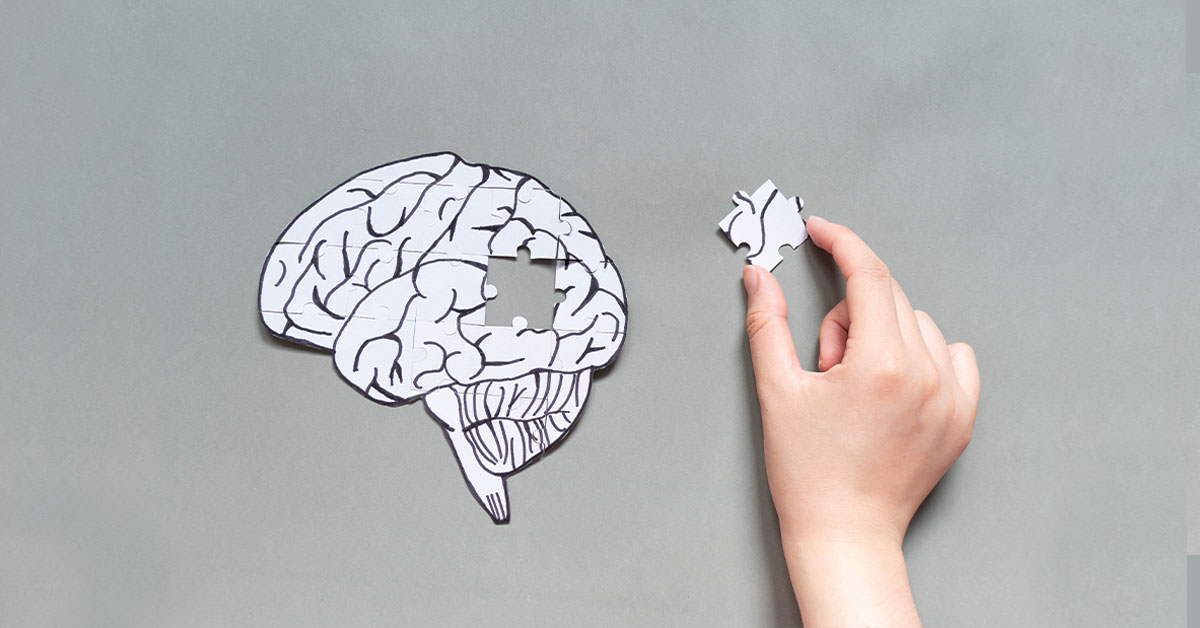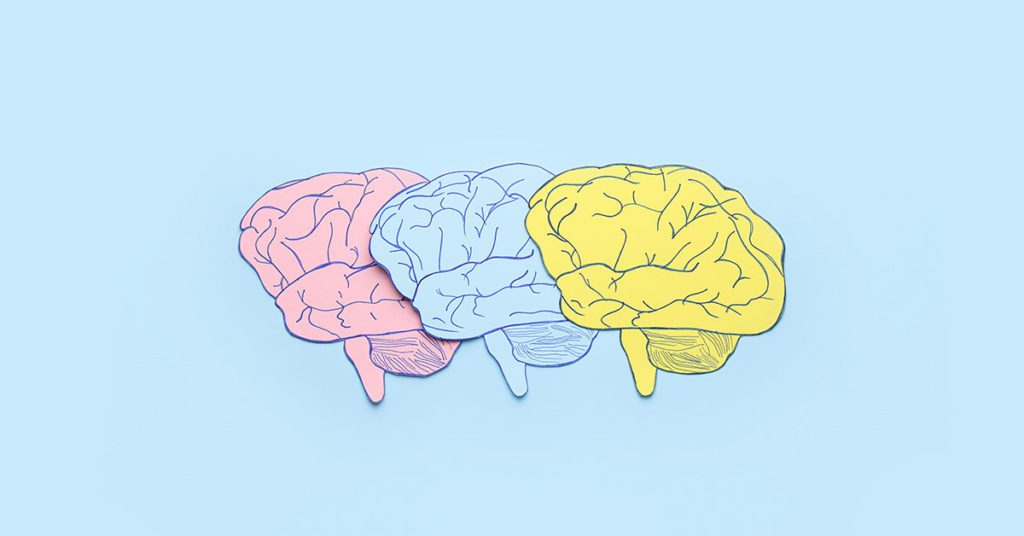Alzheimer’s disease has become a rising epidemic, affecting more than 5 million Americans, and is projected to reach nearly 14 million by 2060. The Alzheimer’s Association identifies Alzheimer’s disease as the sixth leading cause of death in the United States.
Alzheimer’s stages can vary from person to person, based on factors such as diet, lifestyle, and genetics. The length of time an individual may be in each stage varies per individual, progressing from mild symptoms to increasingly worse with time. As the structure of the brain continues to go through changes, the condition progresses through the stages over the years.
A rough estimate of typical progression is about three to four years in the first four Alzheimer’s stages. Stage seven has progressing symptoms and lasts for an average of about one to two years, depending on lifestyle factors. Following a healthy diet combined with regular exercise can lower the risk of developing the disease by 30%.
What Causes Alzheimer’s Disease?
The renowned neurologist Dr. Dale Bredesen created the Bredesen Protocol, which is a holistic program designed to reverse cognitive decline and enhance cognition through reducing inflammation.
There are numerous factors that contribute to cognitive decline. Dr. Bredesen has identified the primary contributors and risk factors:
- Inflammation: Chronic inflammation from stress
- Blood sugar levels: High blood sugar levels increase the risk for Alzheimer’s
- Brain neurotrophic factors (BDNF): Regular exercise and a healthy diet help stimulate healthy levels of these brain-building factors
- Heavy metal/mold exposure: Exposure to heavy metals that are high in mercury, benzene, and other biotoxins
- Blood flow: Alzheimer’s and vascular dementia can be caused by irregular blood flow to the heart and head
- Trauma: Head injuries, accidents, and falls can amplify your risk of Alzheimer’s
- ApoE 4: Having this gene can increase an individual’s chances of developing Alzheimer’s
It is advisable to take preventative measures towards protecting your brain health. It is important to practice good sleep hygiene and proper nutrition. A Stanford study showed that subtle Alzheimer’s-related effects might appear far earlier than memory loss does.
What Are the Symptoms of Alzheimer’s?
Every day can bring forth new symptoms and new challenges. To determine what kind of care is necessary, focus on consistent behavior patterns and habits.
Aggressive behavior, child-like demeanor, confusion, and agitation are common symptoms throughout the stages as individuals grapple with their changing realities.
The Seven Stages of Alzheimer’s Disease
The Global Deterioration Scale is a guideline created by Dr. Barry Reisberg of New York University. It indicates there are seven stages of cognitive functioning for those with Alzheimer’s disease that exhibit a range of different clinical characteristics.
Professionals typically define the stages of Alzheimer’s disease into three, five, or seven stages.
The seven stages guidelines provide a more comprehensive scope of Alzheimer’s symptom stages.
This scale is applied by many professionals and caregivers all over the globe to determine the severity of the disease that an individual is experiencing.
Stage 1: Normal functioning/no impairment
There may be no signs of impairment, and individuals are mentally and physically active. There may be brain-declining processes at play as early as 15-20 years before other symptoms of Alzheimer’s disease develop. Stages one to three are the pre-Alzheimer’s stages.
Stage 2: Very mild cognitive decline
Initial signs of forgetfulness that disrupt daily life begin to appear, such as forgetting familiar words or getting lost in familiar places. Mild/early stages can last for about two to four years.
Stage 3: Mild cognitive decline
Changes in executive functioning affect memory, processing speed, and cognitive function. In this stage, Alzheimer’s disease may be diagnosed.
Stage 4: Moderate cognitive decline
Judgment difficulties involving logic and reasoning start to become more common. The disease has spread to the frontal lobe in this stage, as indications of Alzheimer’s disease become present. Moderate stages can last for about two to 10 years.
Stage 5: Moderately severe cognitive decline
Increase in agitation and confusion. In this stage, the individual can no longer live without assistance. The disease has spread to the occipital lobe in this stage. They may express confusion and not remember where they live, frequent names and places, or the day and time.
Stage 6: Severe cognitive decline
Requires consistent supervision and a greater level of dedicated care due to a possible tendency to wander to other locations. Reminders and assistance with daily life tasks are necessary. They will likely need supervision and help with eating, going to the bathroom, and showering. Severe stages can last for about one to three years.
Stage 7: Very severe cognitive decline
Cognitive abilities deteriorate further, and individuals may not be able to communicate verbally or move around easily.
Final Stages of Alzheimer’s
Alzheimer’s may continue to impact sense of reasoning, executive function, memories, and communication. Because the quality of care can vary in each individual circumstance, progression varies from person to person.
In the late stage of Alzheimer’s disease, each individual journey is different but the concluding result when untreated is eventual death.
Individuals will exhibit a range of these symptoms in the final stages as the body deteriorates due to Alzheimer’s complications:
- Trouble with communication—they may become unresponsive
- Vision difficulties
- Poor appetite
- Difficulty swallowing food and drinking fluids
- Weight loss
- Incontinence—bowel and bladder decline
- Further confusion, agitation, and restlessness
- Increased risk for falls and injuries
- Seizures
- Hallucinations
- Compromised immune system and greater risk of possible infections
- Skin infections and bedsores resulting from lack of mobility
- Increased risk for pneumonia
- Low electrolyte levels
- Heart failure, kidney failure, and other organ-related failures
- Breathing difficulties that may require hospitalization
Four Final Takeaways to Keep Loved Ones Safe with Alzheimer’s
1. Minimize Exposure to Risks
Reduce chances of potential injury. Lower risks of harm by removing sharp, dangerous, or glass objects from their immediate surroundings. Never leave your loved one unsupervised while showering, eating, or using the bathroom.
2. Regular, Reliable Supervision
This is key since they may be more prone to falls or cuts. They may be interested in wandering, and as a result, are at risk of getting lost. It can be quite the responsibility, but there are many caretaking options. Choosing in-home care services or a care center can help reduce harm and provide appropriate treatment and caretaking services.
3. Keep a Daily Water and Food Intake Diary
It is important to keep a balanced diet and proper hydration. Drinking a balanced amount of water is essential to maintain healthy electrolyte levels and protect from heat exhaustion. Because someone with Alzheimer’s may have difficulty following a consistent eating and drinking schedule, they may need help with monitoring that behavior with a daily food and water journal.
4. Prepare and Plan
When caring for your loved one with Alzheimer’s, it is vital to think ahead to prevent potential hazards and take safety care measures.
Adapting to changes in lifestyle also requires patience and adjustment. Always keep a first aid kit handy for any possible scenario.
Check Out Local Caretaking Resources
There are many caretaking resources available to you as you transition to changes in lifestyle with cognitive decline.
You could join a support group to meet others experiencing similar situations as yourself. There are virtual support groups dedicated to providing support for those living with Alzheimer’s and their caretakers.
It can be challenging to handle all caretaking needs alone, so know that reliable resources are available to support you or a loved one with Alzheimer’s.
The Alzheimer’s Association has a 24/7 Helpline at 800-272-3900. You can connect with them to learn about local programs and services, treatment options, and more.
If you are wondering about the key differences between Alzheimer’s and Dementia, check out our blog to learn more about types of dementia, and defining characteristics between the two.





